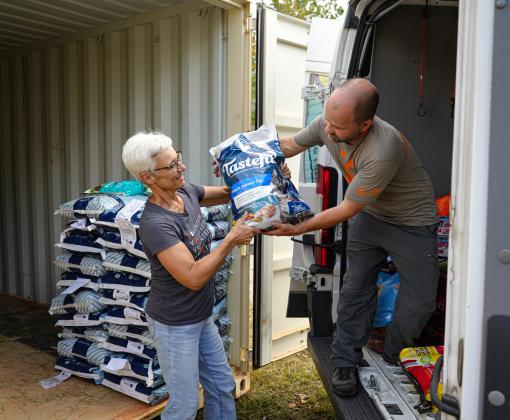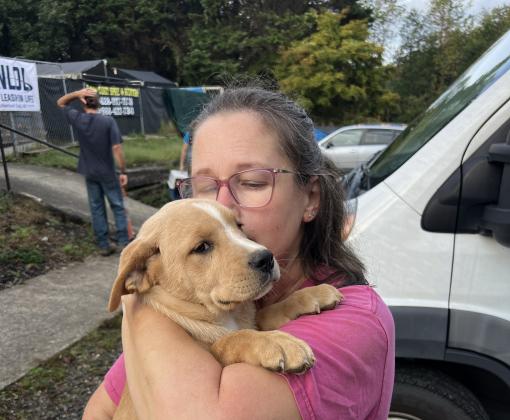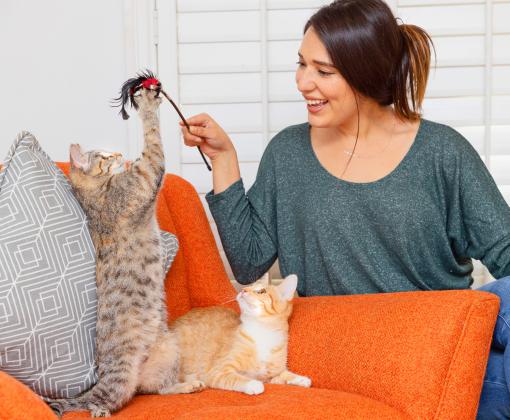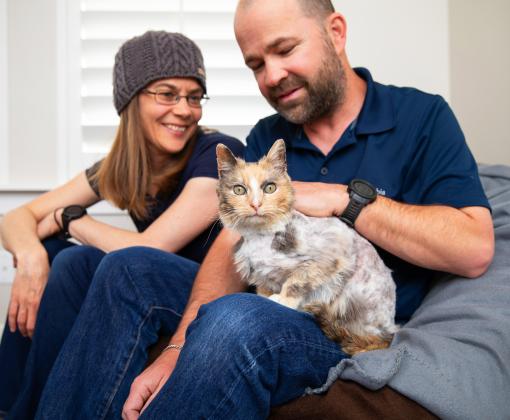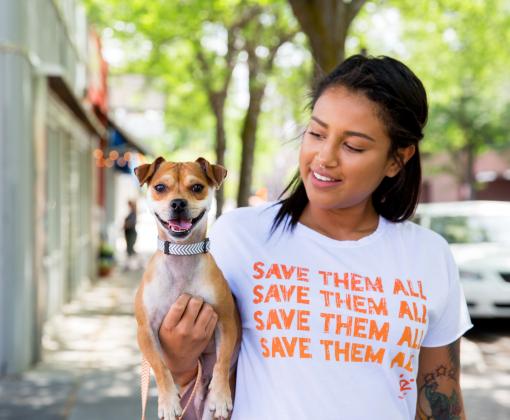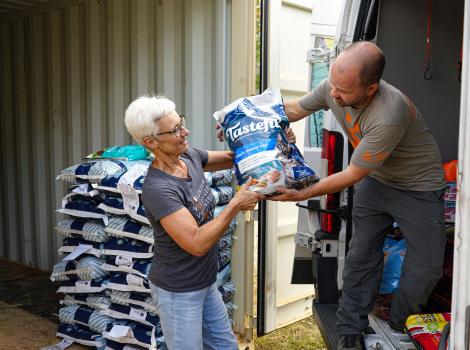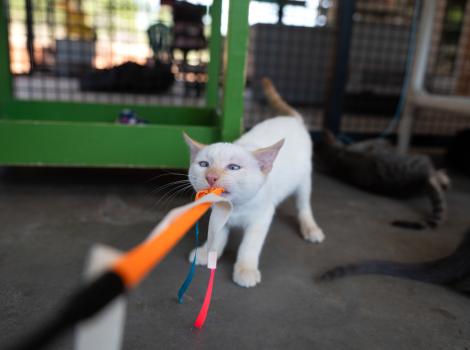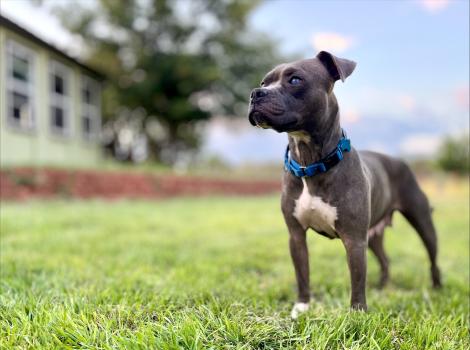Mobile vet care comes to pets impacted by hurricane
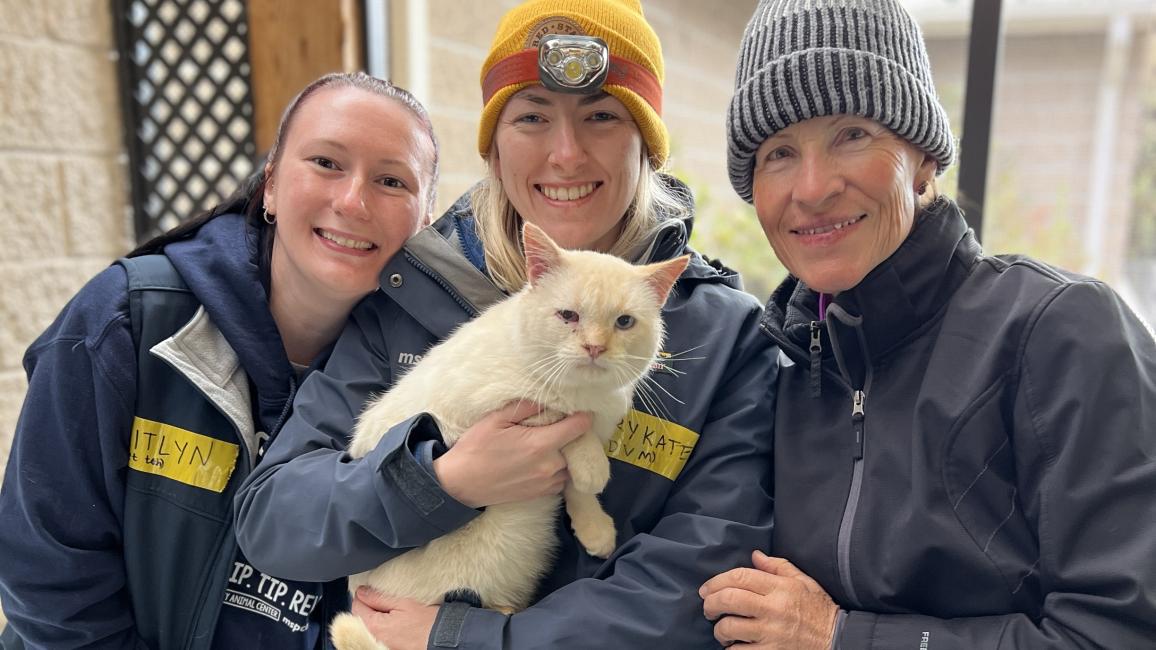
Nan Collins watched in stunned disbelief as Hurricane Helene roared through North Carolina. With water 20 feet above normal in the river across the highway from her property in Burnsville, North Carolina, things got dicey when she noticed everything around her starting to float away. And worst of all, the rising water swept away Nan’s cat Blanco before she was able to reach him.
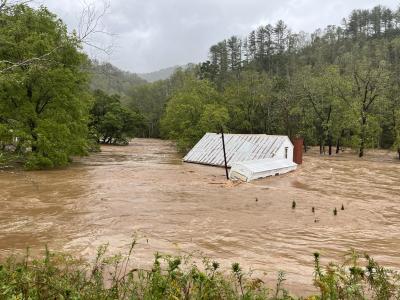
A week went by with no sign of Blanco. And with limited communications and power lines down everywhere, getting the word out about him was extremely difficult. But then on the eighth day, Nan’s son working outdoors heard a weak meow and looked down. He hardly recognized Blanco, whose discolored fur clearly showed the effects of the elements. And though he didn’t appear hurt, for sure he’d need to see a vet.
But with most local infrastructure destroyed by floodwaters, getting Blanco to a vet wouldn’t be easy. Without power and fresh water, most businesses, including veterinary clinics, were shut down. And with more and more displaced dogs and cats coming in with each passing hour, animal shelters were severely taxed.
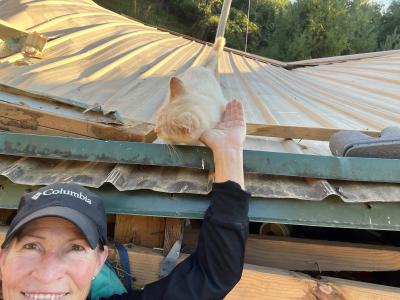
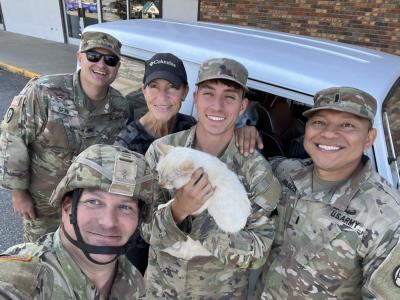
Getting medical services to pets in need
“Right after the storm, we soon learned that just providing food, fresh water, and transporting animals was not going to be enough,” says Audrey Lodato, Best Friends regional director, who’s working on hurricane relief efforts. “Local shelters couldn’t reopen. And good Samaritans were picking up animals and wanting to help, but there wasn’t any place to take them for treatment.”
With the area clearly in need of a mobile veterinary clinic, Audrey began navigating state registration requirements to set up what could be a solution for animals in need. She’d also have to find an available mobile unit, and, of course, she’d have to find veterinarians.
[Saving dogs and cats caught in Hurricane Helene’s wake]
Two organizations that work together in Media, Pennsylvania — Providence Animal Center, a Best Friends Network partner, and Fido Fixers — agreed to bring their mobile clinic to North Carolina. And the first group of veterinarians to staff the clinic would come from Massachusetts. “We called our friends with whom we’ve had great relationships because we knew we’d need intense support to get the clinic off the ground that first week,” says Audrey.
The mobile clinic arrived from Pennsylvania on Saturday, October 12. Its first location would be Rutherfordton, North Carolina, and by early Monday morning it was clear that word had gotten around, with many people and pets waiting. Through the clinic’s first three days of operation, vets treated 156 animals from 99 families.
Blanco sees a vet
The mobile clinic’s next stop was Nan’s town of Burnsville, perfect timing for her to get Blanco checked out.
The veterinary team at the mobile clinic gave Blanco a thorough exam. As it turns out, the 1½-year-old, 11-pound “miracle cat,” as Nan calls him, is doing just fine, considering his ordeal. “We were so lucky to be able to take him in (to the clinic),” she says. “He has infection in both his eyes and ears, but other than that, he’s up to his old self.”
[Helping hands for pets in 2 Florida shelters]
Blanco had both his eyes and ears treated for the infection, and he is expected to make a full recovery. And Nan, well, she’s feeling better, too.
“Our family is all well, and our miracle cat is with me right now running around,” she says. “By the way, his full name is Ricardo Blanco because he’s like a little movie actor, so playful and full of life. He’s like a little puppy dog, always wanting to be beside you and take a walk.”
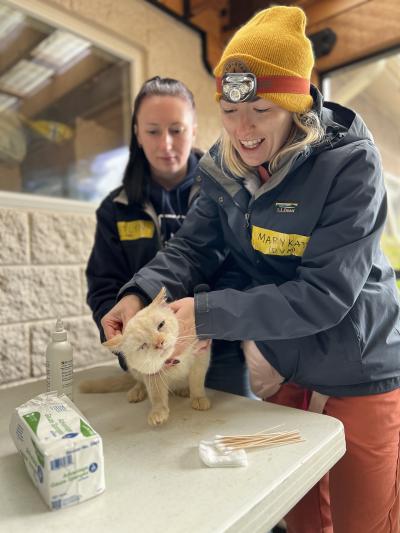
Relief efforts continue
The mobile veterinary clinic, already making a significant impact treating animals in Rutherford and Yancey counties, will remain in western North Carolina in the coming weeks.
“By providing a mobile vet clinic, we’ve been able to not only fill the void while veterinary offices are closed but also work toward the goal of helping families keep their pets,” says Fraily Rodriguez, Best Friends senior director of lifesaving programs. “We will continue helping people and their pets recover from the storm, and we are prepared to support the recovery efforts of the community and the shelter system.”
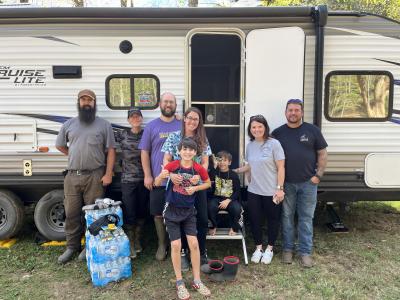
Let's make every shelter and every community no-kill in 2025
Our goal at Best Friends is to support all animal shelters in the U.S. in reaching no-kill in 2025. No-kill means saving every dog and cat in a shelter who can be saved, accounting for community safety and good quality of life for pets.
Shelter staff can’t do it alone. Saving animals in shelters is everyone’s responsibility, and it takes support and participation from the community. No-kill is possible when we work together thoughtfully, honestly, and collaboratively.
